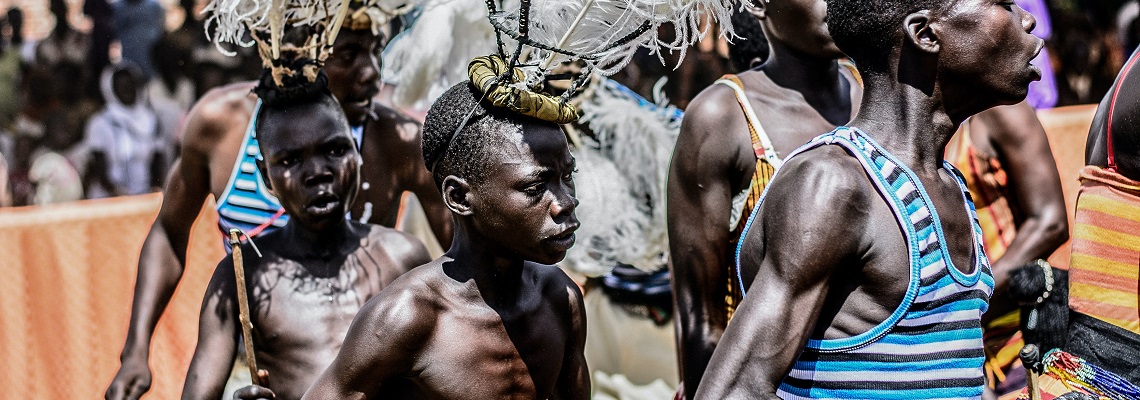
The concept and practice of religion, as estimated by research, has been part of the human experience since 100, 000 BC.
According to Schmidt, religion is a “systems of meaning embodied in a pattern of life, a community of faith, and a worldview of the sacred and what ultimately matters” (Schmidt et al., 1999: 10). It includes the “feelings, thoughts, experiences, and behaviours that arise from the search for the sacred” (Hill et al., 2000: 66).
Weber (cited in Thomas & Muller, 2000), is of the view that differences in entrepreneurial activity at the society level can be explained by cultural as well as religious factors.
Religion and enterprise
Studies about religion and enterprise development is replete with the economic changes that have occured in the world as result of religious responses. For instance, Dodd and Seaman (1998) studied the relationship between the individual religion and enterprise and pointed out that religion affects a believer’s entrepreneurial activity and contact network, as well as influence the decision to become an entrepreneur, and how the individual manages his or her enterprise.
In Africa, religious practices are prevalent, and the continent is regarded as the most religious in the world. According to Pew Research Centre study, by 2050 the number of Christians in absolute number is expected to grow by more than double; from 517 million to 1.1 billion in Sub Saharan Africa. Religion thus constitutes an inextricable part of the African society. As such, business and socio-economic activities are often flavoured with religious expressions and rituals.
The poverty situation in Africa
Despite the strong faith-based orientation in Africa, the continent is regarded as the poorest with over 400 million people living in extreme poverty.
In fact, the Sub-Saharan region is expected to be pushed back further into economic disadvantage owing to the global pandemic, climate change, and lack of requisite technology and innovation related skills among fresh graduates.
Recommended article: Religion as an accelerator of entrepreneurship in Africa
Indeed, estimated figures reveal that four out of every five new start-ups in Africa do not live to celebrate their second anniversary and only about two continue into the third year.
The question thus arises as to whether African religiosity gives impetus to the collapse of businesses thereby leading to poverty on the continent, or whether religion has a crucial role to play in the nurturing and growth of Small and Medium-Sized Enterprises (SMEs) on the continent.
How could religious resources and its actors be mobilised to improve entrepreneurship development on the continent and reduce poverty through same?
Religion and Cooperatives
In today’s article, we focus on the role and importance of Cooperatives, also called SACCOS in some jurisdictions, and how the sheer numbers of religious faithful’s could be leveraged to improve their lifestyles and economic conditions on the continent.
Capital pool
Access to capital continues to be a hindrance to the realisation of many entrepreneurial ideas.
Ideas can only come to fruition ithrough the availability of capital to the numerous entrepreneurs on the continent.
In our view, among the people and institutions that are critical for the mobilizing and spearheading access to capital are religious groups. Religious groups have a unique advantage that seems to be untapped. That special advantage is the number of their followers.
It is common for a given religious group in Africa to have memberships in the thousands. There is no doubt that most religious leaders are doing a great job by preparing their followers for the afterlife. However, not many are doing a lot to improve their members’ socio-economic welfare while on earth. How can religious groups leverage their numbers to raise capital?
Limited Sources of Income & resources
The general rule for wealth accumulation in industry and across all the major religions of the world is simple: Work. Earn, Save, and Invest. However, in Africa, there is a mismatch between real remuneration and cost of living. Waiting on personal income, which is usually depleted by personal needs, would mean that many workers, religious faithfuls inclusive, may have to save for a long time before realising their investment dreams.
Recommended article: Three Ways Religion Can Influence Entrepreneurial Success
However, this conundrum can be resolved through the ingenuity of religious groups by mobilising members to start saving through cooperative societies (Saccos) where cheap and easily accessible capital would be available.
There is magic in numbers. If a religious group has just 500 people, and each member contributes an average of $14 per month, in just three years, that group will be worth $252,000, assuming there is no interest earned in the savings.
The Kenya’s Example
In Kenya, for instance, there are many saccos that are transforming their members economically.
Over the years, saving and credit cooperatives have been able to transform many lives in the country, especially in rural areas. Cooperatives in Kenya not only provide loans to their members, but they also offer investment opportunities, agricultural facilities for farmers, create employment, housing solutions, and so much more. This in turn contributes to the socio-economic development in the country. In short, the ultimate goal of this practice is the eradication of poverty.
Ease of access
Cooperatives are user-owned and controlled and are key to empowering members economically. With SACCOs, a member can easily access funds for school fees and emergency or investment loans at a low-interest rates.
Besides extending loans, Saccos also act as social safety nets for its members since it binds members to a group.
Job creation
Equally important are the jobs created in the process; the Sacco employees themselves. This obviously contributes to the macro-economic development. According to its 2017 cooperative department report, Kenya’s cooperatives contributed over 30% of the country’s GDP.
Depending on the nature of the cooperative, farmers, producers or credit societies, members are able to find solutions to common problems such as low prices, cash flow challenges or shared entrepreneurship risks.
The ultimate
All said and done, it would be in the best interest of religious leaders to empower their followers economically. After all, when you lead an economically empowered congregation, their contributions in the form of tithes, offerings or zakat and other donations would make funds readily available for any religious activity.
May we all begin to explore new ways of leveraging religion as a force for positive social and economic transformation and development in Africa as we work towards “Agenda 2063, the Africa we want”.

